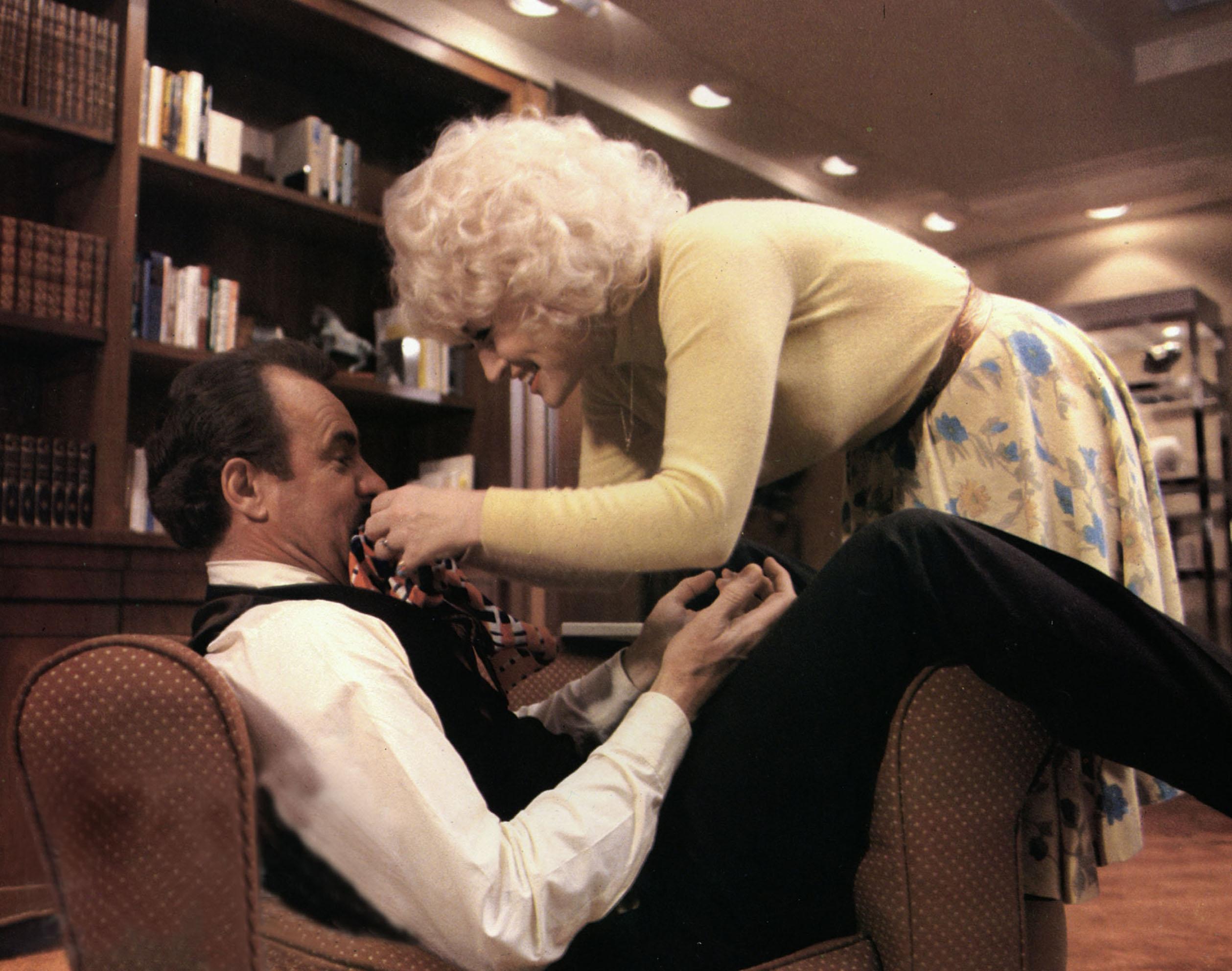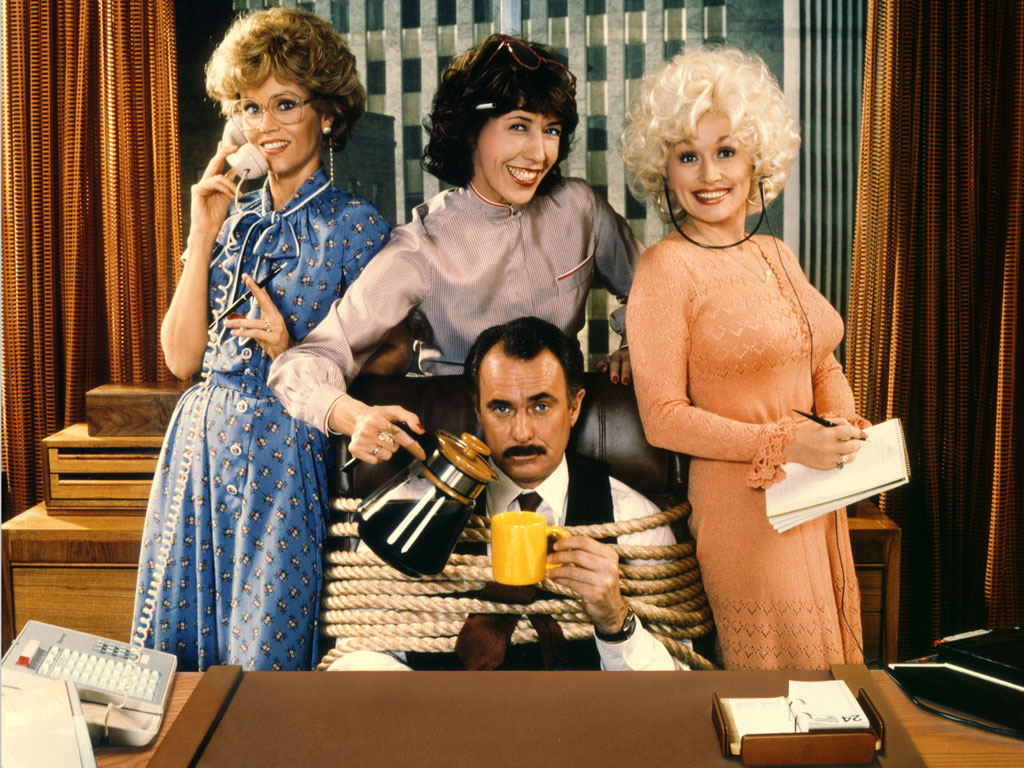It’s rare when the liner notes to a Blu-ray can take your breath away, but in Julie Kirgo’s typically excellent essay for the Twilight Time release of 9 to 5, the last paragraph delivered a sucker punch:
“…Here’s a film that can make you laugh—and also make you mad. Nowadays, with one political candidate disparaging women left, right and center, and another being vilified simply because she is female, it behooves us—all of us—to enjoy 9 to 5, and then get furious all over again.”
The Blu-ray came out in September. I got around to watching it two weeks after we had elected that woman-disparaging political candidate the next President of the United States. 9 to 5 had been a favorite of my childhood, so I was curious to see if it would hold up. It did, and it was both exquisitely sad and infuriating how it has lost none of its relevancy or bite in the ensuing three decades. We need this comedy more than ever, its wit and madcap slapstick serving a script and performances that still have plenty to say about sexism, class and office politics.
A box-office hit in 1980, Colin Higgins’s film concerns a core trio of women—Judy (Jane Fonda), Violet (Lily Tomlin), and Doralee (Dolly Parton)—and their travails with their awful male boss, the “sexist, egotistical, lying hypocritical bigot” Franklin Hart (Dabney Coleman). Judy is newly divorced and entering the workplace for the first time. Violet is the omni-capable working mother who routinely has her ideas stolen by Hart. And Doralee is Hart’s secretary, constantly fending off his unwanted advances. The women bond over revenge fantasies against their vile mustachioed tormentor. And through a wild series of events, they accidentally on purpose poison, rope, and shoot at him, and then have to kidnap him to keep him quiet. (The sequence of events that sets this is motion is one of the film’s highlights.) Running things in his absence, the office blossoms under their superior management and it’s a race to see if Hart will free himself in time and spoil their plans.

The performances across the board are fantastic. The joke of 1970s feminist and radical-chic icon Jane Fonda playing a timid quiet type shocked by a “marijuana cigarette” is something to which Fonda herself fully commits. Tomlin’s capable acting chops slip seamlessly between Violet’s lived reality and the fluttering storybook princess of her fantasies; she’s a ’40s-film career woman one moment and a warbly voiced Snow White in the next. And Dolly Parton as the bombshell knocks it out of the park in her film debut; you can’t take your eyes off her. Dabney Coleman, who made quite the career out of playing heels in ’80s films like Tootsie and WarGames, gives himself to the bottomless awfulness of Hart completely. He is every man who ever talked over you, every stranger in the grocery store who told you to smile.
Watching 9 to 5 in the aftermath of the most virulently misogynistic election of my lifetime, my laughter was checked by the sorrow of how little has changed. The electric typewriters and burnt-sienna-colored furnishings may date it, but the howling rage and unfairness that women have to carry as we navigate through spaces in the world are still here. Same for the contradictory rules and advice—i.e. “don’t be weak, but don’t be too pushy because you don’t want to come off a bitch”—that leave us trying to meet impossible roles. Violet’s anger at being passed over for a promotion for a less-experienced man that she in fact trained is still with us. If anything, it’s more acute after watching presidential debates in which the female candidate answered questions with coherent, comprehensive answers and had to stand there while her male opponent vomited word salad and often went on completely out-of-bounds personal attacks on her—all of which, somehow, was not enough to convince wide swathes of Americans of his lack of fitness to the President of the United States.
But there’s an ever sharper pain to revisiting 9 to 5 today in light of the revelation that 53% of white women voted for a man who bragged about getting away with sexual assault. The firewall of voters I was counting on to hold the line chose white supremacy over their own safety and well-being. That’s why there was almost an element of science-fiction in watching the film this time. Is it possible that the idea of seeing women actively looking out for each other and for the other women in the office, and not actively working against their own interests, has actually become passé? I wonder if Judy, Violet, and Doralee might have aged into Trump voters, the kind of old people blinded by nostalgia and fear of change who become reactionary. I know that my Judy, Violet, and Doralee, as forever preserved in Higgins’s film, never would. And that’s a fantasy I need very much right now—one for every time I watch 9 to 5, so I can laugh instead of cry.


















One thought on “The Fantasy We Need Now”
I love this film. It is funny but also allow us to root for those ladies against that sexist, hypocritical bigot. Plus, the title song is one of those country songs that you can’t help but love and I’m not into country music. Well, today’s country music. BLECH.